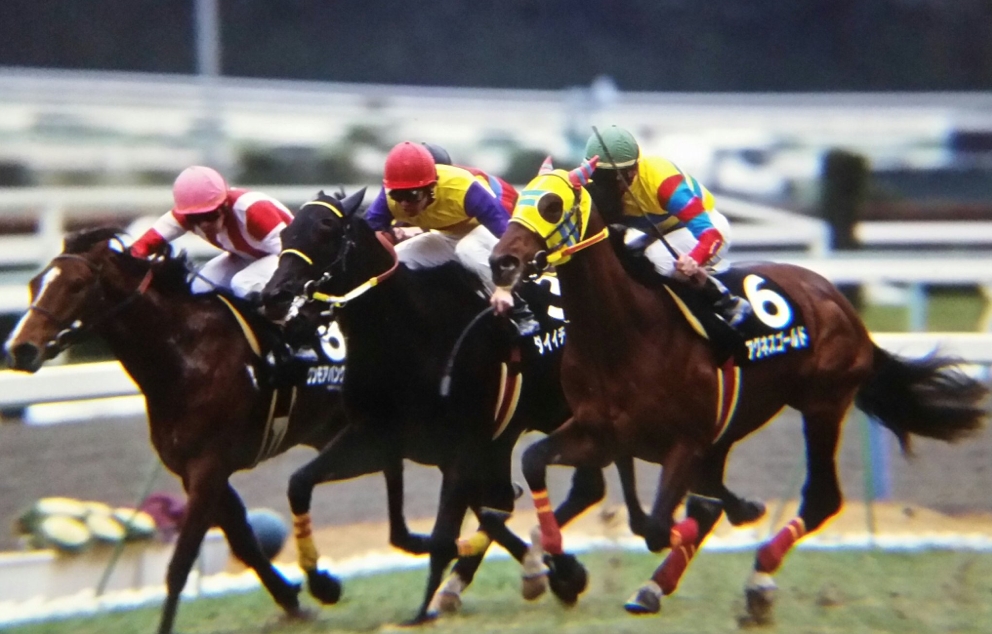Agnes Gold (JPN): How a Sunday Silence Son Dominated Brazilian Breeding
Few racehorses manage to make a lasting mark both on the track and in the breeding shed—but Agnes Gold (JPN) is a rare exception. Bred in Japan and sired by the legendary Sunday Silence, Agnes Gold had a respectable racing career on home soil. However, it was in Brazil that he truly made history.
After a modest start at stud in Japan and the U.S., Agnes Gold found his stride in South America, rising to become Brazil’s leading sire for three consecutive seasons. His legacy is a testament to the global reach of Japanese bloodlines and the profound impact a well-bred stallion can have in a new environment.
In this article, we explore Agnes Gold’s journey from a promising Japanese racehorse to one of the most influential sires in Brazilian Thoroughbred breeding, uncovering the numbers, names, and narratives that define his remarkable legacy.
Pedigree and Early Life
Agnes Gold was foaled on April 10, 1998, in Japan, and was bred by the prestigious Shadai Farm, a name synonymous with elite Thoroughbred production. He was owned by Takao Watanabe and trained by Hiroyuki Nagahama, entering the racing world with great expectations due to his exceptional pedigree.
His sire was none other than Sunday Silence, the Kentucky Derby winner who became the most influential stallion in Japanese racing history. Sunday Silence’s bloodline reshaped the landscape of Japanese breeding and left a legacy that extended far beyond Japan. For more on his impact, see this detailed Sunday Silence profile.
Agnes Gold’s dam, Elizabeth Rose, was a stakes-winning mare sired by Northern Taste, another titan in Japanese breeding history. This combination of Sunday Silence’s proven stamina and Northern Taste’s speed created a balanced and high-potential genetic package.
The cross between these two bloodlines represented a strategic blend of American and Japanese Thoroughbred characteristics. From an early stage, Agnes Gold showed signs of class in training—displaying composure, athleticism, and a professional demeanor that drew praise from those around him.
According to his Equibase profile, his bloodlines and early impressions gave him a strong platform to launch his racing career. Expectations were high—and as his story would later show, those expectations were only the beginning.
Racing Career in Japan
Early Expectations and Debut
Agnes Gold began his racing career in 2000. He was trained by Hiroyuki Nagahama and owned by Takao Watanabe. With bloodlines from Sunday Silence and Elizabeth Rose, hopes were high even before his debut. He impressed in early training. His stride, calm attitude, and natural ability showed real promise.
Graded Stakes Success
In early 2001, Agnes Gold earned his first major victory. He won the Grade 3 Kisaragi Sho (NHK Sho) over 1,800 meters at Kyoto. This race is a key trial for top 3-year-olds. His win boosted his reputation quickly.
Just a month later, he won again. This time, he claimed the Grade 2 Spring Stakes at Nakayama, also over 1,800 meters. That race often leads into the Satsuki Sho (Japanese 2000 Guineas). Agnes Gold showed sharp speed and strong finishing power. Fans and experts saw him as a serious contender for the classics.
Injury and Early Retirement
But just as the classics approached, disaster struck. Agnes Gold suffered a tendon injury. This common but serious condition kept him out of the Japanese Triple Crown series. He missed the Satsuki Sho, Tokyo Yushun (Japanese Derby), and Kikuka Sho.
He returned to racing later that year, but never regained top form. After only seven career starts, he retired. His record stood at four wins and about ¥134 million in earnings (around 1.3 million USD).
A Career That Felt Like a Beginning
Even with a short career, Agnes Gold showed clear talent. He had speed, focus, and a strong will to compete. These qualities hinted that his true value might come later—as a stallion.
Many saw his retirement as a missed chance. But looking back, it was the start of something bigger. Agnes Gold was just beginning to write his legacy—one that would unfold far from Japan.

Stud Career and Success in Brazil
Slow Start in Japan and the U.S.
After retiring from racing, Agnes Gold entered stud duty in 2004 at Shadai Stallion Station. His pedigree—by Sunday Silence out of Elizabeth Rose—made him a strong candidate. But Japan’s breeding scene was crowded. He struggled to attract top mares. His early foals didn’t make a big impact.
In the mid-2000s, he moved to Lex Stud in Florida for a fresh start. However, he faced similar challenges in the U.S. Without strong breeder support or standout results, his reputation faded. Many assumed his stallion career was nearing the end.
New Life in Brazil
In 2009, Agnes Gold moved to Haras Campestre in Brazil. This unexpected move changed everything. Brazilian breeders saw value in his bloodlines, especially as a son of Sunday Silence. South America had yet to fully explore this lineage.
At Haras Campestre, he quickly proved himself. His foals were sound, balanced, and mentally sharp. They adapted well to Brazilian racing. He sired over 500 registered foals, with 60% making it to the track. Many became reliable winners.
Becoming Brazil’s Leading Sire
Agnes Gold topped the Brazilian general sire rankings for three straight seasons: 2019/20, 2020/21, and 2021/22. In 2022/23, he finished second. This kind of sustained success is rare—especially for an imported stallion.
His runners won across distances and age groups. Some even competed internationally. Trainers praised their toughness and racing sense. He became known as a sire of versatility and consistency.
For more details on his stud performance, see his profile at American Classic Pedigrees.
Broader Influence and Recognition
Agnes Gold helped raise awareness of Japanese bloodlines in Brazil. His success proved that horses from Japan could thrive abroad. Breeders took note. Some began looking for similar stallions with global potential.
He passed away on October 5, 2019, at the age of 21. But his legacy continues. His name lives on through his sons and daughters. In South America, he’s remembered not as an export—but as a champion.
Legacy and Global Impact
Redefining Global Bloodlines
Agnes Gold’s story is about more than just racing or breeding. It shows how a horse can overcome expectations and find success far from home. His career in Japan was short, but it built the foundation for an even greater legacy.
In Brazil, he became one of the most influential stallions of his era. By leading the sire rankings for three straight years, he changed how breeders viewed Japanese-bred horses. He proved that bloodlines from Japan—especially Sunday Silence’s—could thrive globally.
Changing the Breeding Landscape
Before Agnes Gold, few thought Japanese stallions could succeed in South America. His results challenged that belief. Breeders began to look beyond traditional American and European sires. They started to value new traits: toughness, balance, and racing intelligence.
His foals showed these qualities again and again. They were sound, smart, and adaptable. These traits made Agnes Gold popular with trainers, owners, and bloodstock agents alike. His success helped open doors for other Japanese bloodlines.
Lasting Influence
Even after his death in 2019, Agnes Gold continues to shape the future. His offspring now stand at stud and produce winners of their own. His name appears in the pedigrees of rising stars across Brazil and beyond.
His career proves one powerful idea: class and talent know no borders. Agnes Gold wasn’t just a good racehorse or sire—he was a bridge between two racing cultures.
Explore More Stories Like This
Want to discover more inspiring racehorse journeys? Visit our featured archive: Favorite Horses – AI Shisan Lab






コメント